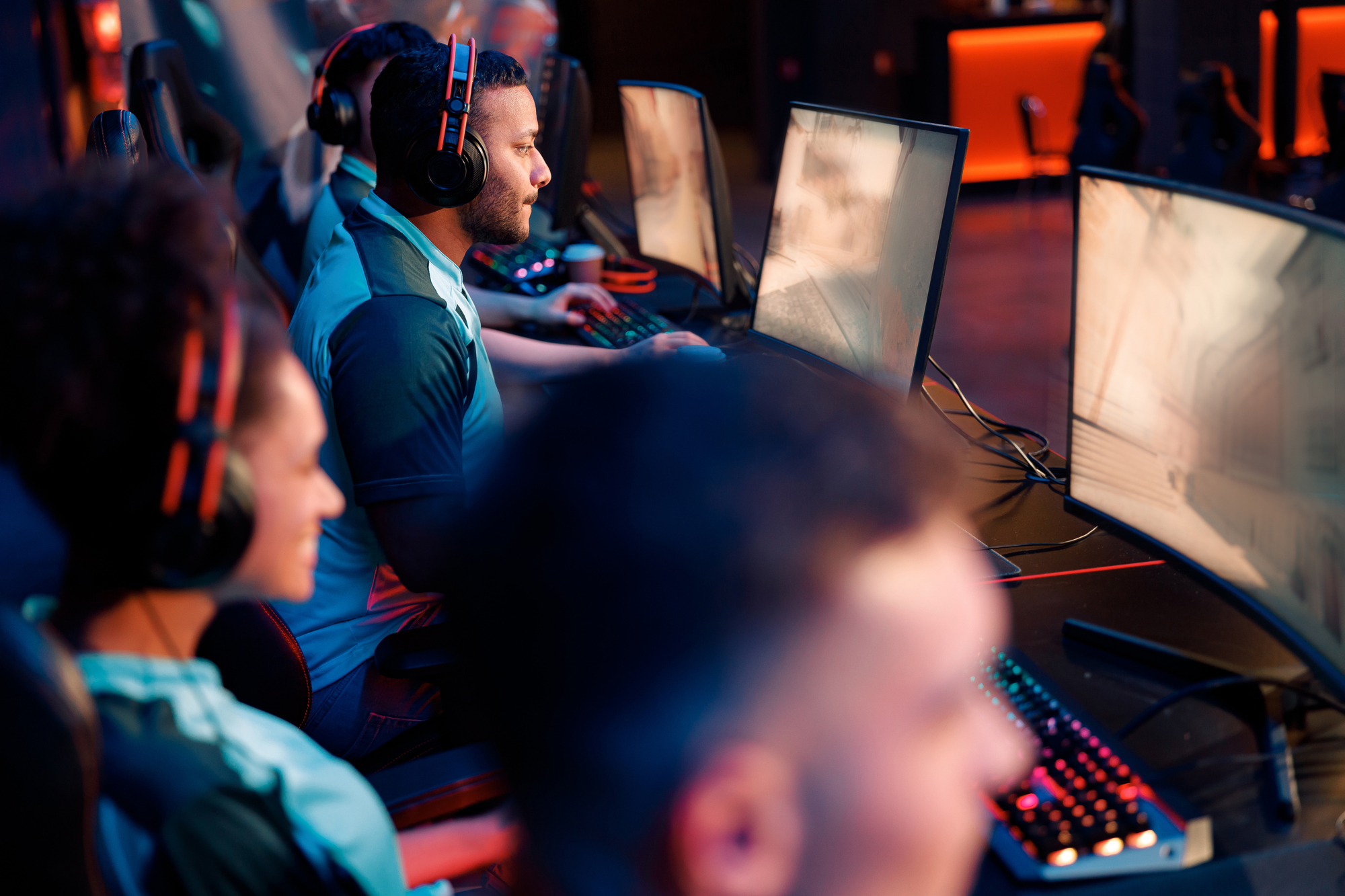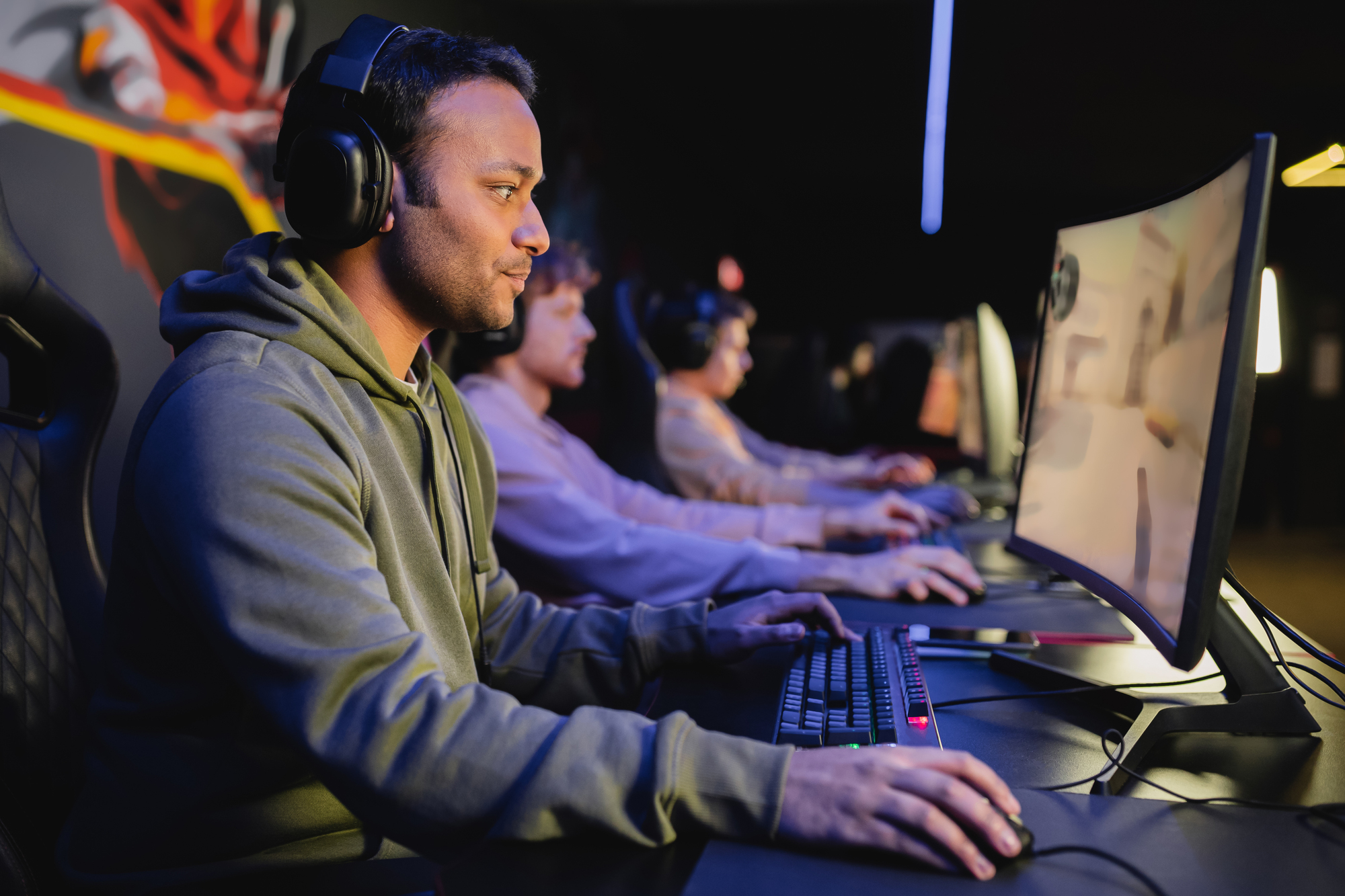Gaming has evolved beyond mere entertainment, emerging as a powerful educational tool. Digital games offer unique opportunities to engage students and enhance learning experiences. Research shows that game-based learning can improve critical thinking, problem-solving skills, and motivation in educational settings.
Games provide interactive environments where students actively participate in the learning process. By integrating educational content into game mechanics, developers create immersive experiences that make complex concepts more accessible and enjoyable. This approach taps into students’ natural curiosity and competitive spirit, encouraging them to explore and master new knowledge.
Educators are increasingly recognizing the potential of gamification in the classroom. By incorporating game elements like points, rewards, and challenges into curricula, teachers can boost student engagement and retention. This innovative approach to education aligns with modern learning styles and technological trends, preparing students for a digital future.
The Intersection of Gaming and Education
Gaming and education have converged to create powerful learning experiences. This intersection has led to innovative approaches in educational technology, new theories of game-based learning, and significant pedagogical benefits.
Evolution of Educational Technology
Educational technology has transformed rapidly with the integration of gaming elements. Digital games have become valuable tools for teaching complex subjects and skills. Many schools now use educational games to supplement traditional lessons.
Game-based platforms allow students to practice problem-solving in engaging virtual environments. Simulation games help learners apply knowledge to realistic scenarios. Adaptive learning systems use game mechanics to personalize instruction based on student performance.
As technology advances, virtual and augmented reality games are creating immersive educational experiences. These tools transport students to historical events or inside biological systems for hands-on learning.
Game-Based Learning Theories
Game-based learning theories explore how games can enhance cognitive development and knowledge retention. The theory of situated cognition suggests that learning is most effective when embedded in authentic contexts, which games can simulate.
Flow theory proposes that the ideal learning state occurs when challenge and skill levels are balanced. Well-designed educational games aim to keep players in this “flow zone” to maximize engagement and learning.
Social constructivism emphasizes collaborative learning, which multiplayer educational games foster through team challenges and peer interactions. Gamification applies game elements like points and leaderboards to educational activities, tapping into intrinsic motivation.
Pedagogical Benefits of Gaming
Educational gaming offers several pedagogical advantages. Games provide immediate feedback, allowing students to learn from mistakes quickly. This iterative process encourages persistence and a growth mindset.
Many educational games incorporate adaptive difficulty, automatically adjusting to each student’s skill level. This personalization helps prevent frustration or boredom, keeping learners engaged.
Games can make abstract concepts concrete through visual representations and interactive simulations. For example, physics games allow students to manipulate variables and observe outcomes in real-time.
Collaborative games develop teamwork and communication skills. Role-playing games can build empathy by allowing students to experience different perspectives. Strategy games enhance critical thinking and decision-making abilities.
Maximizing Learning Outcomes Through Gaming
Gaming can boost educational outcomes when implemented strategically. Key factors include aligning game elements with learning goals, providing timely feedback, and creating engaging experiences.
Enhancing Student Learning and Motivation
Games can increase student engagement and motivation in educational settings. Research shows that well-designed educational games can improve knowledge retention and skill development. Interactive elements and immediate feedback help students stay focused and actively participate in the learning process.
Game-based learning often taps into students’ intrinsic motivation, making the educational experience more enjoyable. This can lead to increased time spent on tasks and improved learning outcomes. Collaborative games also foster teamwork and communication skills.
Evaluating Educational Games’ Effectiveness
Assessing the impact of educational games requires careful consideration of multiple factors. Studies have shown varied results, highlighting the need for rigorous evaluation methods.
Key metrics for evaluating game effectiveness include:
- Knowledge gains
- Skill development
- Student engagement levels
- Long-term retention
Researchers use pre- and post-tests, gameplay analytics, and student feedback to gauge learning outcomes. Meta-analyses have found positive effects on motivation and certain cognitive skills, though results can vary based on game design and implementation.
Design Principles for Effective Learning Environments
Creating impactful educational games demands thoughtful design. Successful learning environments integrate pedagogical principles with engaging gameplay mechanics.
Essential design elements include:
- Clear learning objectives
- Adaptive difficulty levels
- Immediate and constructive feedback
- Meaningful choices and consequences
- Opportunities for reflection and application
Games should balance entertainment with educational content to maintain student interest. Aligning game mechanics with specific learning goals helps maximize educational value. Incorporating social elements can enhance collaboration and peer learning.
Practical Implementation of Gaming in Education
Integrating games into educational settings requires careful planning and execution. Educators must consider various factors to maximize the benefits of game-based learning for student outcomes and academic performance.
Integrating Games into Curriculum
Incorporating games into existing curricula demands strategic alignment with learning objectives. Teachers can select or design games that reinforce specific concepts or skills. For example, math games can practice arithmetic operations, while language games can build vocabulary and grammar skills. Games can serve as introductory activities, reinforcement exercises, or assessment tools.
Educational institutions may develop custom games tailored to their curriculum or utilize existing educational game platforms. Some schools dedicate specific time slots for game-based learning sessions, while others weave gaming elements throughout traditional lessons. The key lies in seamless integration that complements rather than replaces standard teaching methods.
Challenges and Considerations in Classroom Settings
Implementing game-based learning in classrooms presents several hurdles. Limited technology resources can hinder adoption, as many educational games require computers or tablets for each student. Time constraints pose another challenge, as teachers must balance game time with other instructional activities.
Student engagement levels may vary, with some becoming overly competitive or distracted by game elements. Educators must manage classroom dynamics to maintain a productive learning environment. Additionally, aligning game content with curriculum standards and assessment requirements can be complex.
Privacy and data security concerns arise when using digital games that collect student information. Schools must address these issues and comply with relevant regulations to protect student privacy.
Role of Teachers and Facilitators
Teachers play a critical role in successful game-based learning implementation. They must familiarize themselves with the games, understanding both the content and mechanics. This knowledge allows them to guide students effectively and troubleshoot any issues that arise during gameplay.
Educators facilitate discussions before and after gaming sessions to contextualize the learning experience. They help students connect game concepts to real-world applications and broader curriculum goals. Teachers also monitor student progress, identifying areas where additional support or clarification may be needed.
Professional development opportunities can equip teachers with skills to integrate games effectively. Training sessions on game selection, classroom management during gameplay, and assessment strategies enhance educators’ ability to leverage games as powerful teaching tools.
Looking Ahead: The Future of Educational Gaming
Educational gaming continues to evolve rapidly, driven by technological advancements and ongoing research. New tools and approaches are emerging to enhance learning experiences through interactive digital platforms.
Emerging Trends in Educational Technology
Augmented reality (AR) is gaining traction in educational games. AR overlays digital information onto the real world, creating immersive learning environments. Students can explore historical sites, conduct virtual science experiments, or practice language skills in simulated real-world settings.
Artificial intelligence (AI) is transforming personalized learning in games. AI algorithms adapt game difficulty and content based on individual student performance, providing tailored educational experiences. This technology helps identify areas where students need extra support and offers targeted practice opportunities.
Multiplayer educational games are fostering collaboration and global connections. These games allow students from different locations to work together on problem-solving tasks, promoting cross-cultural understanding and teamwork skills.
The Ongoing Research and Development in Gaming
Educational technology research continues to explore the effectiveness of game-based learning. The National Science Foundation funds studies examining how different game elements impact knowledge retention and skill development. Researchers are investigating optimal ways to integrate educational content into engaging gameplay mechanics.
Empirical evidence is growing to support the benefits of educational gaming. Studies show improvements in critical thinking, problem-solving abilities, and motivation among students who use well-designed educational games. This research guides the development of more effective learning tools.
Game developers are collaborating with educators to create curriculum-aligned games. These partnerships aim to produce games that directly support classroom learning objectives while maintaining high engagement levels. The goal is to seamlessly integrate gaming into existing educational frameworks.












